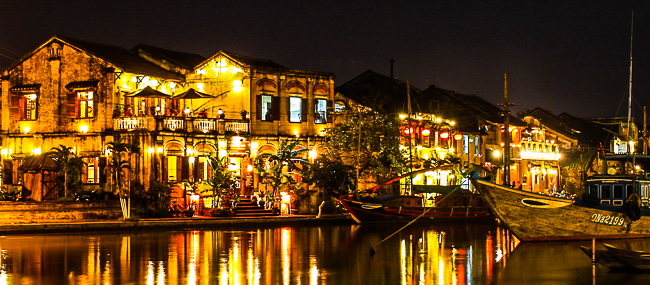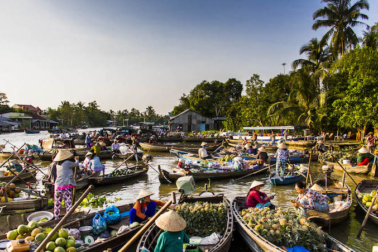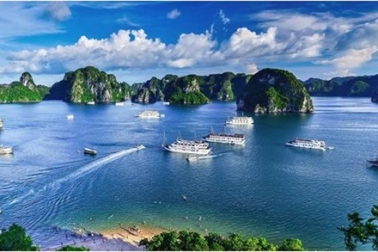
The Central Coast is likened by the Vietnamese to the bamboo pole connecting the baskets of North and South. The Truong Son Mountains, which stretch all the way to the coast between Hue and Danang, have traditionally divided the country in two in terms of weather and dialect, although the actual demarcation line during the Vietnam War was slightly higher up at the 17th parallel to the north of Hue.
Cities
- Da Nang – Vietnam’s fifth largest city where the beaches are the main attraction
- Dong Ha
- Hoi An – trading port with an UNESCO World Heritage listed old city and pedestrian-friendly shops and cafes
- Hue – the former imperial capital and popular tourist attraction
- Nha Trang – popular beach town
- Lang Co – fishing village that includes mountains, a river, a lagoon, an island and a 32 km beach
- Thanh Hoa
- Qui Nhon- Lively town, relatively untouristed, makes for a good break between Nha Trang and Hoi An
- Tan Ky
Other destinations
- My Son – UNESCO World Heritage listed ruins of temples built by the ancient Champa civilisation, located close to Hoi An
- Na Meo – border crossing town
- Cham Islands – or in Vietnamese Cu Lao Cham are 7 islands 9 nautical miles offshore to the East of Hoi An river-ocean inlet
- Quang Ngai – place to see Mỹ Lai Massacre Memorial Museum (13km NE of Quang Ngai & 2km from My Khe Beach).
Climate
July to November is the typhoon season, so it’s wise to check the forecast a few days before your planned visit. Typhoons form in the Pacific, east of the Philippines. In some years, they curve north toward Taiwan and Japan and leave Vietnam in peace. In other years, they cross the Philippines and run straight into central Vietnam, causing possible flooding and wind damage. The threat of typhoons is one factor that has limited economic development in the central region relative to the north and south.


